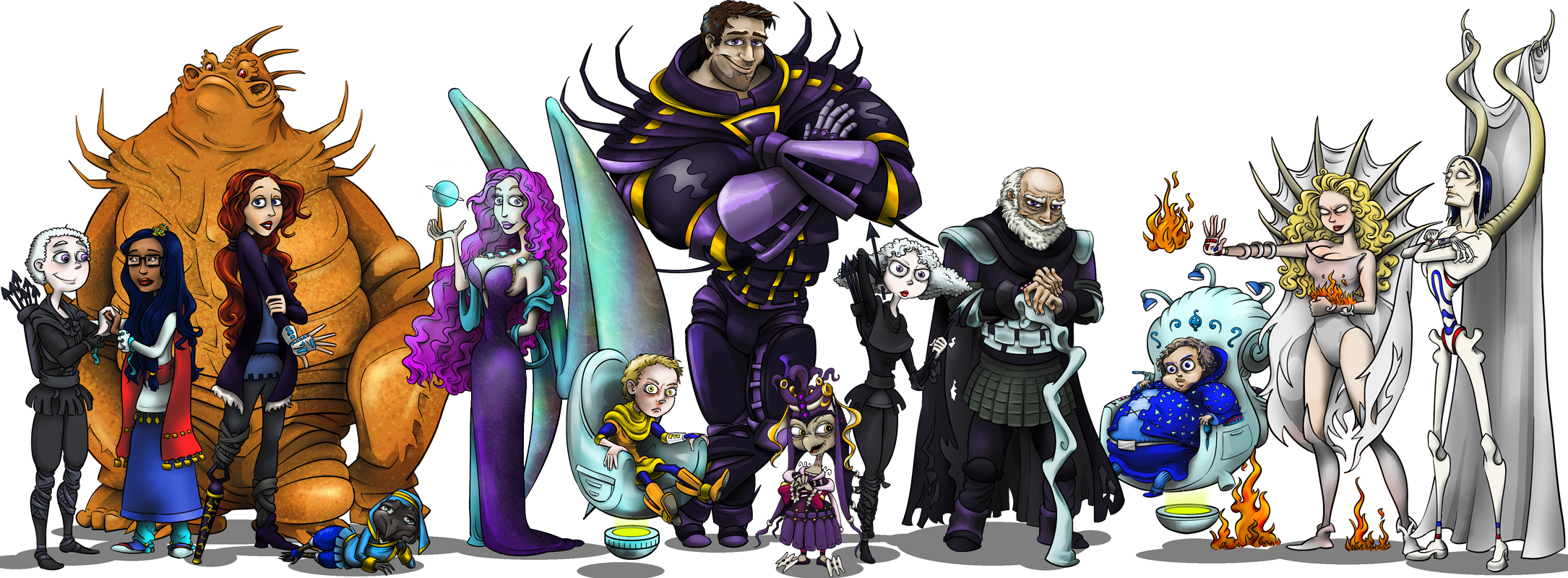Cherise ghosted through the recreation room. She might as well be no one, easily ignored.
The scissors hidden in her pocket were razor sharp.
The teens in this cluttered game room had said hello to her when the social worker was introducing her to them. Now that adults were absent? Cherise was a shadow hidden behind curtains of black hair. She was a stir of air beneath the war zone sounds of their video-game. No one would bother to speak to a girl who never said a word out loud.
A fat teenager glanced away from the TV and suddenly caught sight of Cherise. He waggled his tongue, as if to imply that the new girl might be enticed by disgusting sights.
Cherise tightened her grip on the hidden scissors she had stolen from an unguarded sewing kit. This group home was a lot less vigilant than the mental institution had been.
“Huey?” a small boy said. “That guy looks like your dad.”
The fat teen looked towards the TV screen. It was full of violence, with macho guys slamming their fists into each other’s faces.
“Oh so funny, Thomas.” The fat teen sneered at the small one.
The object of his sourness was severely disabled. Not only was Thomas small and prepubescent–he sat in a powered wheelchair. Judging by his stunted, withered limbs, he could not walk at all. He held a lightweight laptop balanced across his bony knees. How could such a frail kid feel safe challenging someone so much larger?
Oh well. It was not Cherise’s problem.
She exited the recreation room before anyone else took notice of her. It was always a good idea to avoid fellow victims. Abused children absorbed cruel lessons from their parents, Cherise knew. She herself had learned all kinds of selfish cruelty from her Ma.
Not that she could have protected her baby sister. Nobody could have.
Still, she should have put up a fight. That was what a good person would have done.
The kitchen smelled like ramen noodles. Mrs. Hollander stood by the stove, stirring a pot, making dinner for her eight wards. Cherise sneaked past her new foster mother, unnoticed. That rickety door, over there, must lead to the backyard of this house.
Cherise unlatched the decrepit door. Hinges creaked as she slipped into the night, although she tried to be quieter than the rain hissing upon leaves. She eased the door shut behind her.
The back porch was soft with rot.
Cherise sat on a bench that looked battered and eroded. She pushed up her sleeve and poked the sharp end of the scissors against her dark skin.
Slice.
She dragged the blade, wishing it would scratch out her hatred, wishing she could release her pent-up screams.
She sliced again.
And again.
Again.
Maybe she ought to cut herself out of the world?
Mrs. Hollander seemed pleasant. No doubt she would appreciate having one less broken teenager to include around the dinner table.
The flimsy door creaked open.
Cherise froze, ready to hide the scissors or else stab someone. Who had dared follow her into the rainy night?
It was the ultra-disabled kid.
Thomas powered his wheelchair through the doorway, and the door clattered shut behind him. “Hi,” he said in a friendly voice. “I’m your suicide watch.”
Cherise raised the bloody scissors in an unspoken threat. The kid must be lying. No one sane would put this little pipsqueak in charge of a suicide watch. His limbs looked as fragile as twigs, and his squeaky voice could never raise an alarm.
Only extraordinarily messed up kids ended up in foster care, Cherise felt sure. Had Thomas’s father or mother beaten him until he couldn’t walk? He must contain a volcano of rage. No doubt he was here to torment the new kid. Would he make fun of her baggy clothes?
“You’re Cherise.” Thomas fumbled for the notebook tucked by his side, and painstakingly tore out a sheet. “I don’t mind that you’re silent. I can hear your thoughts.”
What crap was this?
Cherise narrowed her eyes at the disabled kid. Thomas was white, his hair the color of wet sand, like many people in Appalachia. No doubt he would zero in on how different she looked and bludgeon her with it. Maybe he would quiz her on what ethnicity she was. Latina? Native American? Why did she have a French name?
“I know you’re not physically mute,” Thomas said. “You have a legit phobia of speech.” He folded the sheet of paper, this way and that. “Everyone misjudges me, also. I know what that’s like.”
He actually sounded sympathetic.
Okay, so he planned to reel her in with false pity. Ha. Cherise knew that game. Everyone wanted to trick the mute girl into saying something. This kid would slam her with a harsh joke the instant she let her guard down.
“You’re afraid that if you start speaking,” Thomas said, “you’ll scream. And you won’t be able to stop.”
That was accurate.
Cherise ignored the throbbing of her cut arm. It was as if Thomas saw who she truly was, beneath her glasses and thick hair. But that was impossible.
“Your mother punished you every time you spoke.” Thomas fluffed the paper, sculpting it. “For your entire life, up until recently, you were unable to speak without suffering a punishment. That’s why your throat closes up whenever you try.”
Cherise smelled the dirty gag stuffed in her mouth, as if she’d just begged for something to eat. Ma hated complaints.
Could her silence really be due to Ma? Cherise assumed that she’d been born defective and pathetic, just like Ma said.
But hadn’t Ma said the same things about the baby?
The baby who wouldn’t shut up.
Glitzy kept wailing, drowning out the flies that buzzed around their trailer. She must have been very hungry. Ma kept punishing her, until that final time, when Glitzy went silent forever.
I hate Ma. I hate her. The pain in Cherise’s torn skin was nothing next to her searing fury. She wanted to stab Ma in the gut. Stab her until she screamed, and then keep stabbing until she went silent. Stab her eyes out. Stab her throat.
Surely no one else seethed with such feral, animalistic rage? If other people felt this way, they would never be able to laugh or smile.
They would not have kind eyes, like this boy.
Cherise’s inner hatred and rage was how she knew that her Ma was right, after all. She was a defective freak.
“Your Ma never knew you.” Thomas made more creases in the paper. “She never tried to get to know you. And your feelings are rightfully earned. Rage and hatred are not a sign of being defective. It’s all completely normal, given your situation.”
The way he answered her exact thoughts … Cherise wanted to ask how he guessed what was inside her mind.
She opened her mouth, but her throat thickened until she could no longer smell the rain. She couldn’t make a sound.
“You associate speaking with pain.” Thomas studied her with unabashed interest.
His curiosity should have made him look childlike. But his eyes were strange, and not just in color. Somehow, Thomas looked as if he had witnessed a thousand lifetimes. He looked like a grizzled old man stuffed inside the skin of a disabled child.
“Your phobia is so ingrained,” Thomas went on, “knowing the cause won’t help you much. But time will. You don’t have to be mute forever.”
Cherise wanted to ask how Thomas could be so certain.
Words stuck in her throat, aching. She would never be able to speak.
“You’re speaking right now,” Thomas said. “We’re having a conversation.”
Thomas seemed to hear her thoughts as clearly as she heard the song of crickets. He seemed to truly see who she was. Not just a victim. Not just a target. Not just a lonely girl, or a tragic news story, but the actuality of her, Cherise Chavez, without embellishments or labels.
Do you hear my thoughts? Cherise wondered.
“Yes.” Thomas answered exactly as if she’d spoken aloud. “I’m a mind reader.”
The impossible statement was as stark and undeniable as the rainwater which dripped from the gutters, and the blood dripping from her arm.
Wow.
Cherise could not imagine why a uniquely powerful psychic wanted to talk to the likes of her. Was he trying to save an unwanted teenager whose mother was in prison for murder? Why? Cherise was a girl who lacked friends. She lacked a future.
Maybe Thomas simply felt compelled to reach out? Was he some sort of disabled superhero? Cherise was pretty sure she had read about a character like him in some X-Men comics.
“I’m not a superhero.” Thomas faced her with a pained expression. “My pain is as real as yours. Mostly, I work on staving off my own early death.” He gestured at his frail body. “Everyone has problems, especially in a place like this. I have plenty of my own. Time is valuable to me. I don’t waste it. I only came out here because … well, because I judged that you’re worth talking to.”
Cherise had never been so sincerely complimented. “…Why?”
She paused at the sound of her own voice, quavering like an old lady’s. Her voice!
She felt no fear of speaking in front of Thomas. None at all. There was no danger of misunderstanding. He would know what she meant, no matter if she tripped up on words, no matter whether or not she used her voice.
Why do you believe I’m worthwhile? She asked the question inside her mind, because that was more comfortable for her.
Thomas made more folds in the paper. “Cherise, I absorb memories.” He looked ashamed. “I’ve glimpsed what you survived, the home where you grew up, and I’m certain that it would have killed me, or sent me to a loony bin. Very few people could grow up in that household and still see beauty in the world. You’re one in a billion. You have a resilience that I want to … well … be around.”
Cherise had the impression that he meant every word.
His sincerity made her smile a little. The expression felt brittle, as if her face was made of clay.
Thomas faced her squarely. “Let’s get something straight. I’m not trying to force a friendship. We’re both lonely—there’s no point in treading around that issue—but I came out here because I’d rather not see your particular mind vanish.”
She swallowed. His compliment defied everything that her Ma had ever said about her.
“I have some first aid stuff in the back pocket of my wheelchair.” Thomas indicated her wounded forearm. “Would you please bandage that up? No one has to know. I’ve absorbed several lifetimes worth of medical knowledge, so I can make sure it doesn’t get infected.”
He was offering to save her.
“If you refuse,” Thomas said, “then I’ll stop bothering you. I promise.” He seemed hesitant. “I just figured I’d ask.”
The more Cherise studied Thomas, the more she realized how ancient he looked, despite his childishness. His body was frail and prepubescent. But his gaze? That belonged on a war veteran.
“You see me.” Thomas sounded grateful. “Your perceptiveness is a lot like mind reading. You have insights into everyone, but no one understands you.”
Cherise held her bleeding arm away from her clothing. She rummaged in the back pocket of Thomas’s wheelchair, one-handed, until she found the adhesive bandage roll.
Once she was done bandaging her cut, Thomas handed her the notebook paper. It was transformed into a perfect origami lion.
“For you,” he said.
Cherise marveled at the crisp folds.
“Squeeze his mane,” Thomas said, “and he’ll roar.”
Cherise tried it. The lion roared silently.
“There’s a lion inside you,” Thomas said. “When you rip your mother’s grip off your throat, everyone will listen.”



